Read the fic on AO3 only Rated: M
A Hannibal S3/Valhalla Rising crossover missing scene [fic notes only] …
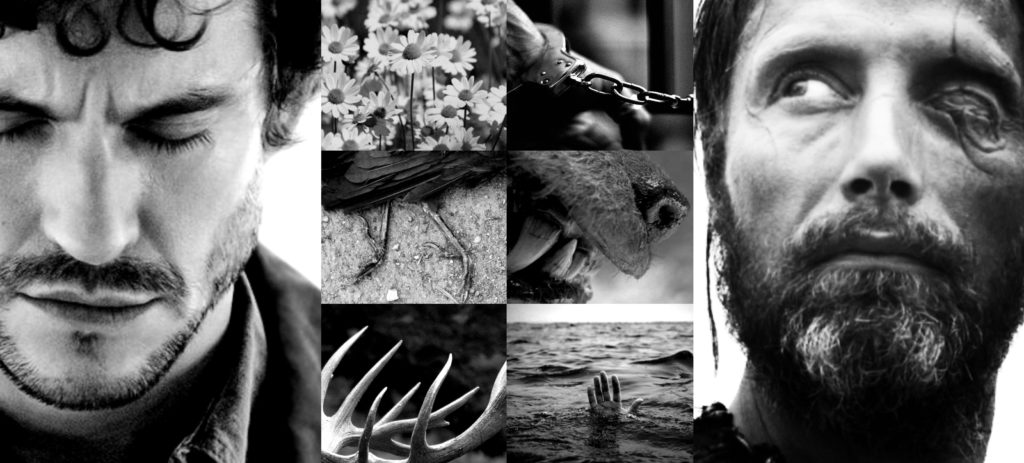
I will begin by admitting that my obsession with the Poetic Edda was what prompted this story.
As I read the myth of Óðinn hanging for nine days in a wind-battered tree… I couldn’t help but picture Will in his place. From there, comparisons began to arise between Óðinn’s personality and Will’s neurotic behavior. I was seeing Norse symbols in every episode of Hannibal – most probably imagined – but they were exciting all the same.
I began reading the Prose Edda and saw Will in Tyr. I saw him in Thor. I saw him everywhere and then the more I thought about these stories and poems, I began to see Hannibal in Loki. I saw Abigail in Hel. The pieces seemed to fall into place. Óðinn and Loki being blood brothers, Óðinn and Loki fighting against and with each other …
Parts of Loki (his children) are cast away by Óðinn. Loki is punished by him, he is held accountable by him, and as much as the other Gods despise Loki’s antics, Óðinn is defensive of his brother. In the end, however, it is Loki and his brood that bring about Ragnarök and despite his best efforts, Óðinn cannot stop his fate.
These are very similar themes that run through NBC’s Hannibal – concepts of fate and destiny intertwined with ambiguous morality and lots and lots of death and destruction.
I should probably explain that One-eye is Óðinn. If you missed that in Valhalla Rising, I’ll point it out now. One of Óðinn’s many, many names is One-eye.
VR has so many themes, from depicting the fall of man because of religion, to self-sacrifice, to destiny and fate, etc … it’s a very ‘man vs nature’, ‘man vs man’, and ‘man vs self’ sort of smorgasbord. I’m not going to do a critical analysis of Valhalla Rising because everyone and their brother has done one.
You may already know that I love director Nicolas Winding Refn, so I’ll just say, despite Valhalla Rising’s flagrant violence, abuse, and overuse of almost trope-like “art film” qualities, I still love it. I think it’s a fun jaunt into the mythological world of old and “new” religions, and since I despise organized religion in general, I think it’s a film everyone should watch.
Valhalla Rising takes place around 1000 AD. Many of the Norse myths were recorded in 12-1300 AD to help give you a timeline. Around 1000 AD, the Crusades were just about to take over Europe replacing the old pagan gods with Christianity. This is, obviously, a major theme of Valhalla Rising since One-eye makes it to the Americas with a group of Crusaders looking for the Holy Land.
I originally had a bunch of info right here about the original Graham Clan and how WIll could be related or at least connected to The Boy (in VR), but I already posted about that, so I won’t bother repeating.
The only two people in the whole fic given formal names are Will and Óðinn. All other characters remain nameless and I use, something like eight fifteen of Óðinn’s names in my fic, plus all the chapter names are more of his names. Óðinn has over 200 names. I don’t even give Hannibal a name in this fic other than to call him The Ripper a couple times. Also, if you watched Valhalla Rising none of those characters have names either, except One-Eye.
Below are the notes that I wanted to attach to the end of each chapter but I didn’t. If you want to know more about the symbolism of my fic or if you are curious as to where all the crazy dreams come from, I have the myths listed and offer references to learn more. Check out Jackson Crawford’s YouTube channel to get a hot take on the Norse myths and language.
Individual Chapter Notes
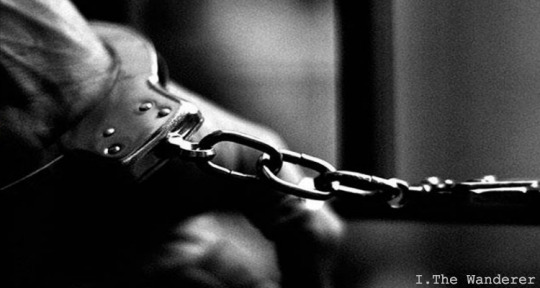
I have a very elaborate headcanon backstory for Will – growing up in Louisiana, speaking broken French, being a latchkey kid, suffering from a lot of emotional turmoil since his alcoholic father really doesn’t understand his empathic “condition”, etc. I even have a sad story for how he got his first pair of glasses but it’s not yet published. Any of this ringing any Hopper bells? All the bells should be ringing.
So in my headcanon, Will spends a lot of time at his neighbor’s house and I briefly mention her in this chapter. She just happens to be described as an older, motherly-type woman, a seamstress, and having raised two boys before Will. She’s a blatant Frigg reference, and it draws comparisons between Will and Frigg’s youngest son (with Óðinn), the golden-boy Baldr. Baldr’s death is monumental to all the Norse Gods. In fact, it’s so tragic that Óðinn sends someone to Hel to try to get him back. But that all comes up later.
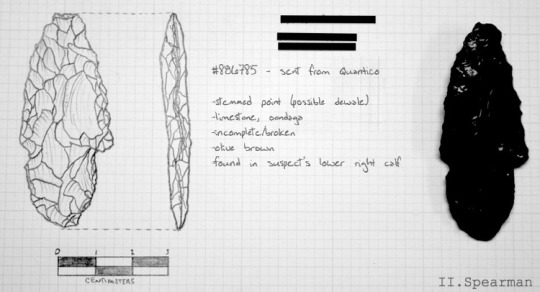
All that historical stuff about spearheads and limestone is based on the assumption that the Crusaders in Valhalla Rising landed somewhere around Quebec, possibly sailing down the St. Lawrence River or one of its tributaries. The red clay covered natives in that region of Canada around 1000 AD could have been the Wyandot people (aka the Huron). I’m basing this strictly on depictions of those tribesmen who used a lot of red clay to paint themselves and also very similar weaponry to what was portrayed in the film (similar types of bows and arrows and the club that fell One-eye at the end).
Also, Óðinn’s spear is named Gungnir. There is no reason to know that, I’m just sharing for fun.
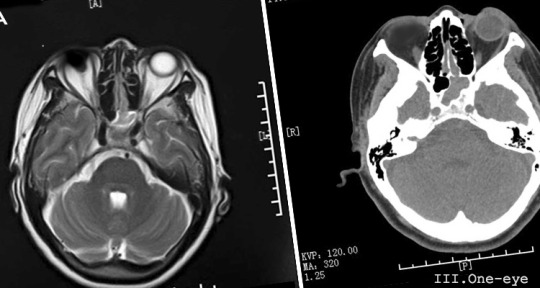
My headcanon Will speaks French because he grew up in Louisiana. “Va te faire foutre,” means something akin to “kiss my ass” or “fuck you” in French. I like to keep Will a little sassy.
Also, in Valhalla Rising, One-eye was supposed to stay with his captors (the ones who were setting up his fights) for five years. They renege on that contract when another tribesman takes possession of him in the beginning of the film and we all know what happens to him. Mads Mikkelson must really like to disembowel people … but those four years of constant fights are where One-eye gets all his fractures. I’m only explaining this because I know some of you haven’t seen the film. Shame on you.
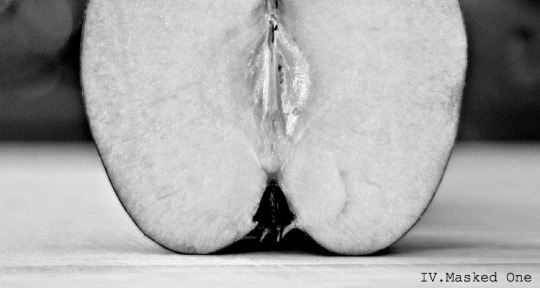
Apples come up later in my fic as well. I wanted to give significance to something my characters can consume. This is a Hannibal fic after all. Apples were special to the Norse gods. They provided them with something akin to eternal youth. Without them they wither and age.
By the way, all my references to Norse Mythology come from the Prose Edda by Snorri Sturluson (Anderson’s translation) and the Poetic Edda by Sturluson (Crawford’s translation). If you want to know more about the apples you can read about them briefly in the myth “Idun and Her Apples” in the Prose Edda.
I play a lot with dignity and names in this fiction as well as domination vs submission because of One-eye’s character in Valhalla Rising being very yielding to his “captors” and because of all of Will’s colleagues treating him with a strange sensitivity since his incarceration. These are just several of many themes running through this fic but I’m not going to bore you with them here.
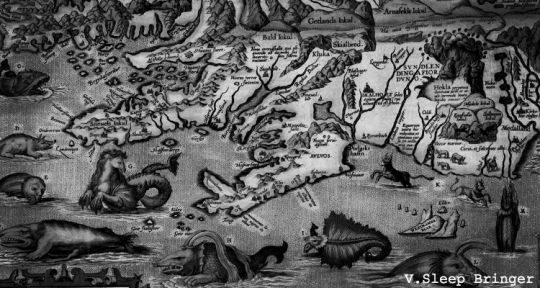
Óðinn’s ravens were named Huginn (thought) and Muninn (memory). From the Prose Edda:
Two ravens sit on Óðinn’s shoulders, and bring to his ears all that they hear and see. Their names are Hugin and Munin. At dawn he sends them out to fly over the whole world, and they come back at breakfast time. Thus he gets information about many things, and hence he is called Rafnagud (raven-god). As is here said:
Hugin and Munin
Fly every day
Over the great earth.
I fear for Hugin
That he may not return,
Yet more am I anxious for Munin.
Ravens typically travel in pairs and we see two unceremoniously perched atop Cassie Boyle, the college student whose body was found mounted on antlers in a field outside of Hibbing, Minnesota. This is irrelevant, I’m just sharing some of my personal brain vomit about how I’m bringing the show into this mess of a fic.
About Will’s house, in an interview with Patti Podesa, Hannibal’s production designer, she says of Will’s home:
I found a farmhouse outside Toronto, untouched, habited by the original owners. This became our backstory for Will: he purchased the house and land and just moved in. He lives in the downstairs, so he can be aware of anyone showing up outside … Some of the furniture, paintings and books belong to the owners of the house (who are the most fabulous couple – he was a motocross champion in the ’60s, she paints) … Will lives there with his dogs, his motorboat parts and his fishing tackle. He does not have a computer and does not bring work home.
It has been my personal headcanon that a bunch of junk was left in the house by the old owners and Will basically just moves in and makes it his own. I love the idea of there being old crappy paintings in the attic that he dusts off and displays (you can see some of the amateur art above Will’s fireplace – a woodland scene with birch trees). This is what prompted my Encyclopedia bit. Not owning a computer allows Will the leisure of combing through his research slowly and intentionally – never wandering too far out of his comfort zone. Books require deliberation and methodical exploration, and this is how canon Will approaches his gathering of knowledge. He has always been a technophobe so books are far more comfortable for him.
Also, the chapter graphic is of an old map of Iceland. On it, we see caves, rivers, ocean, wolves, and sea monsters … lots of foreshadowing there …
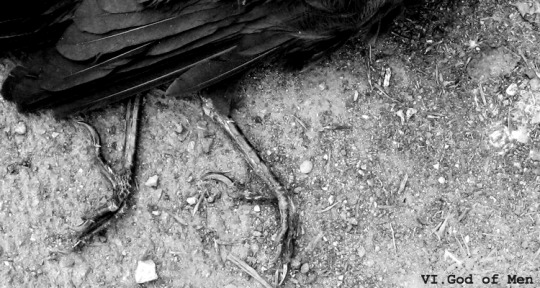
This secondary case that Will tags along on is never mentioned again, and is only significant symbolically. The decapitated body is a reference to Mímir, the wise. Óðinn often sought Mímir’s counsel (in fact it was Mímir’s well that Óðinn drops his eye into so that he may see his future – he sees his death at Ragnarök and then spends his life trying to avoid this fate). Mímir is beheaded during the Æsir-Vanir War and Óðinn keeps his head, which has been smeared with herbs and chanted over, in a box and refers to it for counsel. I used the herbs from Óðinn’s nine herb charm for reference even though the charm is for poisonings not, um, death by decapitation. The nine herbs charm was an Old English charm recorded in the 10th-century Lacnunga manuscript (an old book of medical recipes).
If you’re interested, the charm references the following nine herbs:
Mugwort (Mucgwyrt)
Cockspur grass (Attorlaðe)
Lamb’s cress (Stune)
Plantain (Wegbrade)
Mayweed (Mægðe)
Nettle (Stiðe)
Crab-apple (Wergulu)
Thyme (Fille)
Fennel (Finule)
You crush the herbs to dust and mix them with soap and apple juice. You sing a charm into the mouth of the wounded, both of their ears, and over the wound itself prior to the application of the salve. There is more to all of this, but that’s enough about it here.
As for the name thing, yes, I only refer to Will and Óðinn by their formal names. No one else is named. I hope I did a decent enough job of describing everyone well enough that you can tell who they are. The science husbands get blurred, but that’s inconsequential.
I have a pet peeve in the Hannibal fandom that I had to explore in this chapter. I hate it when people call Will, William. It’s a thing that I just can’t get over. He has only ever been referred to as William on very weird occasions, once in a Tattle article in the book Red Dragon, and I think in the movie version of Manhunter. For some reason, fanfic writers think Hannibal likes formality so much that he’d call him William despite it being incorrect. Let’s not forget Hannibal has used the terms “a-hoppin,” “mic-drop,” “cheesy,” and “atta girl.” And if you read the books, he makes fart jokes, for god’s sake. Fans sometimes make him speak in Shakespearian riddles which I think it why in Unhitched I make him blunt as all hell.
For myself, there is no way I can make Hannibal call Will by anything other than his actual name, and since Harris didn’t name him William, he’s sticking with Will. I do recognize the irony is that statement considering Hannibal intentionally calls him everything EXCEPT Will in my fic Unhitched, but it’s an AU. There are different rules for AUs. Anything goes.
Moving on … Grimnir is one of Óðinn’s many names. It’s the old Norse spelling which translates to “Masked One,” the title I use for chapter IV.
Seiðr is the “womanly” magic that Will mentions when he’s talking about Óðinn. It’s only womanly in that it was concerned with discerning and altering the course of destiny by re-weaving part of destiny’s web. Óðinn was all about that because he was very anti-dying-at-Ragnarök. But seiðr was seen as a woman’s magic (associated with sorceresses or witches) possibly because it had to do with “weaving” which was woman’s work or possibly I just made that up.
That aside, at the time (Viking Age, remember 8th to 11th century) this type of profession would have been highly dishonorable for a man to partake in. No “self-respecting” “man” would adopt a female’s social or sexual role (why did I say sexual – because everyone seems to peg Will as a bottom boy, and I’ve never been able to get on board with that). And yet, Óðinn is associated with the masculine/feminine energies. A duality, so to speak.
Of course, now that I think of it, didn’t one of the Crusaders fuck another dude at the end of Valhalla Rising? The answer to that is a resounding yes. One of them did. They were in that weird drug-induced haze. Refn really likes to sneak that stuff in there, doesn’t he? I’m still reeling over his “homosocial” kiss between Frank and Tonny in Pusher … because all my straight dude friends totally make out with each other in bars all the time. They use it as a way to “bond” … just like how they “play knives,” pretending to playfully stab each other because THAT’S not sexually symbolic in any way. Just two bros hanging out at a bar, pretending to stab each other until they end up a pile of sweaty giggles on the floor. I don’t know why I launched into shit about Pusher … back to what I was saying about womanly magic …
Actually, that’s all I had to say. I personally see Will very much like Óðinn, bridging the gap between what is referred to as masculine and what is considered more feminine. Will’s my plaid wearing, scruffy-chinned, small engine repairman. But he’s also my slutty little tease who is very in touch with his emotions. So I like to portray him less effeminate – more classically masculine – but with a traditionally more womanly appreciation for compassion, family, and emotional sensitivity.
But to each his own and all that. If you love to read stories about Hannibal undressing a long-eyelashed Will before powdering the man’s creamy white ass, you go right ahead! I’m sure there are a million of them to choose from, so enjoy.
Powdering Will’s creamy white ass, tho … just picture that for a sec.
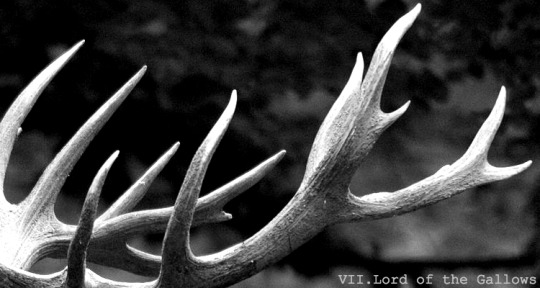
I may have gone overboard drawing comparisons between the mythology and the show. This dream of Will’s is basically my interpretation of Óðinn’s Quest for the Runes and The Song of Spells found in the Hávamál, a collection of Old Norse poems from the Poetic Edda (they are from the perspective of Óðinn).
I took some liberties with the stags (also called harts or red deer), mainly because the stag is a critically important symbol in Hannibal but hardly touched on in Norse myth. The stag’s “formal” names are pulled from the Grímnismál in the Poetic Edda and are Dáinn, Dvalinn, Duneyrr, and Duraþrór, but how I use them in my story are not necessarily reflective of their significance to mythology. Dáinn and Dvalinn are more notably dwarfish names in Norse mythology (you may also recognize them from Tolkien’s lore) and mean Death and Sleep, respectively. These names are also mentioned elsewhere in the “Hávamál” but they are referencing the rune keepers of the elves and dwarves and not the stags which is confusing to say the least, but whatever.
For Duneyrr and Duraþrór, I used Finnur Magnússon’s early 1800s translation of the names (though I do not subscribe to his four-winds symbolism as I find it farfetched and stupid) and named them Thriving Slumber and Thunder in the Ear. Altogether, I see them as the four stages of human consciousness.
Dáinn is death, the largest stag who is purposeful and uncaring.
Dvalinn is sleep, dew and moss-covered from his time spent unmoving among the branches.
Duneyrr is transcendental meditation, who is the most unique of the four stags and offers Will introspection (he is also the only one of my stags to “speak”).
Duraþrór is consciousness or wakefulness and is both loud and cumbersome and the smallest of the stags as he represents the shortest amount of time our minds are in this stage.
I debated for a long time trying to decide on Will’s position as he hangs from Yggdrasil. Óðinn is not described as hanging by either neck or foot, but both depictions can be found in art from all over Europe (the most common being Óðinn hanging by foot like the “Hanged Man” card in the Tarot deck). As the translations seem to refer to Óðinn looking or peering down, we could say his body is hanging head up, but of course, “down” could be referring to the direction towards the Well of Urðr into which he peers, so his orientation is still a mystery. Whether Óðinn is hanging by foot or noose is irrelevant, however. I chose to crucify Will because, hey, he basically crucified Hannibal with the help of the orderly, Matthew Brown (S3E5). (I love how I used his full name and the episode number as though you don’t know this.)
As he hangs from the World Tree, Óðinn learns of the runes, nine songs, and eighteen spells, which I suppose correspond to eighteen runes, but I could find nothing attributing a specific spell to a specific rune (at least not in the correct order). As an aside, this is the origin story of the Old Norse Futhark. It was not a man-developed alphabet, it was given to Óðinn in a Divine vision.
What I ended up with in my story, after spending two days staring at about four different translation of each spell just to get an approximate idea as to what the hell was being discussed, was eighteen short, modern descriptive attributes of human qualities, skills, or traits. I felt as though Will would succinctly summarize the spells into easily digestible bits that reflected his own personality and abilities. Since he’s highly empathic, he has a certain insight into humanity and how men act, and I feel like Norse magic is very similar to human intuition and the fields of modern sociology and psychology.
Of course, don’t listen to me, I write gay fanfiction. I don’t know anything about this shit. Go look up Jackson Crawford. He’s informative and very suave.
As for the rest of the chapter, the story is just Óðinn’s … he hung for nine days from a wind-battered tree, etc, etc, you get the gist. Read the Hávamál. Actually read Jackson Crawford’s Cowboy Hávamál. It’s funny and charming (no pun intended) and you will get a straight-forward translation of Óðinn’s advice, and it reads like you’re sitting around a campfire shootin’ the shit with hobos.
I will say that the “mad horse” comment was just dumb luck. Yggdrasil is an ash tree and means “Óðinn’s horse” and when I saw the pneumonic device used by plant taxonomists, I had to use it. It was too perfect. This chapter is so packed with crap (there’s even a Dante’s Inferno reference ffs). I’m stopping here, because I’ve already said too much.
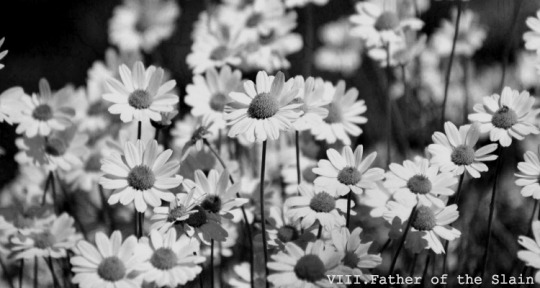
First off, the graphic is of the Icelandic flower Mayweed (see the nine herb spell from chapter VI). But it has another name: Baldursbra or Baldr’s Brow. I said Baldr would be significant later, and it is officially later.
So this chapter is all about the loss of a child. I bring in stuff about The Boy (from Valhalla Rising) to prompt Will’s self-reflection about what happened to Abigail. One-eye could be mourning the loss of The Boy, or he could be mourning the loss of Baldr. Baldr was his golden boy. He was loved by all (except Loki) and his tragic death (spurred by Loki) caused all the gods to weep (save Loki). But you can’t really blame Loki for what happened (yes you can). Óðinn banishes three of Loki’s children and there is a whole host of other problems between them, but I’ll focus on his three kiddos since the next three dreams are all about them.
Óðinn sends Loki’s half dead/half living daughter Hel to … well, Hel (also called Niflheim), where she becomes the goddess of the underworld. Loki’s wolf-son, Fenrir, is sent to an island in the lake Amsvartnir so he doesn’t eat the world, and Loki’s snake-son, Jörmungandr, is cast into the waters surrounding Midgard. Óðinn is paranoid as hell and he knows these three kids will be the death of him, quite literally. It’s a prophecy and it actually happens at Ragnarök.
Back to Baldr for a moment … Will’s talk about moving on and finding peace after withering from the death of a child … if you know Baldr’s story, that makes a bit more sense (Poetic Edda, “The Death of Balder”). So Baldr’s older brother Hoðr was tricked by Loki into killing Baldr with a sprig of mistletoe. Óðinn freaks out and sends someone to Hel to have Baldr released, long story short, due to Loki being a double-douche, Baldr is forced to stay in Hel but he returns each spring bringing his golden light with him. Think Hades and Persephone.
I really love the Baldr myth though. It’s tragic and poetic and I love that it brings about the fall of the entire realm. It paves the way for a brand new world, not unlike the death of Abigail sparking a turning point in the Hannibal world … though that is probably a stretch.
Anyway, you may be asking how I am relating all this Norse mythology to Refn’s One-eye. Well I kind of see One-eye as a regenerating being. His character might have a sense of finality in the film, but I remember reading once that Refn had intended to make a prequel that basically had One-eye traveling through time. It sounds ridiculous (because it is) but it got me wondering if One-eye didn’t live in cycles (at least in the Valhalla Rising universe). It made me create this entire AU in my head in which One-eye continually lives and dies, fights and falls, and sacrifices himself for the innocent. So I attach all the myths to him as though he has lived them for thousands of years and that the little window we peer into during Valhalla Rising is close to the very end of his existence as Christianity is forcing out the old gods.
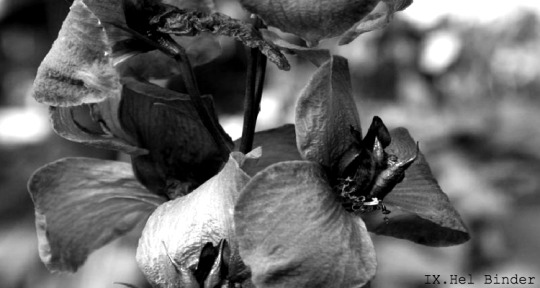
Obviously I made Abigail Hel. Hel is the two-sided (death/life) daughter of Loki and is described as literally having a dead and a living half. The symbolism abounds here with Abigail literally being both alive and dead in the show. First she’s alive, then her dad nearly kills her, then she survives, then Will “eats” her, then Hannibal “surprises” Will with her actually being alive, and then Hannibal kills her (again), and then we are all tricked into thinking that she and Will go to Europe together, and then we find out that Will’s just pretending … what a life … er, death.
Hel is mentioned in a few stories. My basis for the realm is not so much in the scripture as it is in my own personal vision of Niflheim or what I think a young daughter of Loki may create. It is also the sort of world Will envisions Abigail living in. It is a realm of perpetual autumn, which, if you remember the show, the whole Shrike storyline takes place in the fall, so to Will, she may feel trapped in this golden memory of that experience together.
“Loki’s Offspring” in the Prose Edda tells us a little bit about Hel:
Hel, [Óðinn] cast into Niflheim, and gave her power over [the ninth world] that she should appoint abodes to them that are sent to her, namely, those who die from sickness or old age. She has there a great mansion, and the walls around it are of strange height, and the gates are huge. Eljudner is the name of her hall. Her table hight famine; her knife, starvation. Her man-servant’s name is Ganglate; her maid-servant’s, Ganglot. Her threshold is called stumbling-block; her bed, care; the precious hangings of her bed, gleaming bale. One-half of her is [black], and the other half is of the hue of flesh; hence she is easily known. Her looks are very stern and grim.
My Hel still feeds her dead with the meager pittance of a vast orchard. Obviously these are not Iðun’s apples, they are probably more akin to crab-apples, but she is doing her best to bring comfort to the dead.
Will runs into two dead folks in Niflheim. First is Sheldon Isley, aka Tree Man (S2E6), who gives him the Belladonna that Hannibal has stashed where his heart should have been.
The second is Beverly. Awww. I teared up writing Beverly’s part. Did you catch my “curiosity killed the Katz” joke? No? Well shit.
Oh, the dog’s name is Garm. He guards the entrance of Niflheim which is called Gnipa-cave. It’s irrelevant to know his name, but Will would want you to know (he’s mentioned again in the Prose Edda, “Ragnarök”).
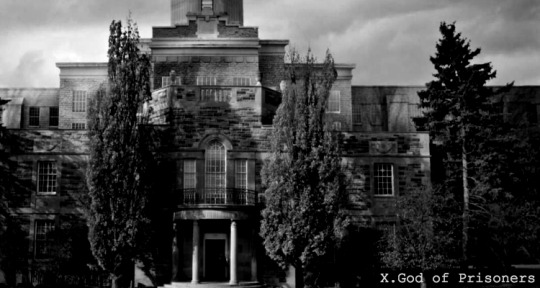
So, my notes are getting ridiculous so I’ll just talk about this line: “We are both now at the mercy of time – awaiting the sword, the teeth, or the fall to kill us.”
At Ragnarök (Prose Edda, “Ragnarök”) and the end of Hannibal (assuming season four never happens), Heimdall fells Loki with his sword, Fenrir’s jaws kill Óðinn, and obviously, the cliff kills our boys. This could also reference Hannibal’s sweet chef’s knives and his teeth also being viable options for Will’s death and that brings me to my next strange headcanon.
In the Lord of the Gallows, I note how I imagine Will dying in Wrath of the Lamb. The stag asks Will if he “feels the teeth at the end”. My headcanon is that Hannibal tastes Will’s neck as they fall. Not like in a “kiss kiss” way or an “I’m hungry” kind of way but rather an “honor the flesh of my kindred spirit” kind of way. Hannibal really wanted to eat him. I mean he tried to eat him what, four times? If you don’t think he’d try again as his dying act … I’m not sure we watched the same show.
Of course, Bryan Fuller focuses a lot on all the physical pain Will is feeling at the end of Wrath, while he shows all the emotional pain Hannibal is in, so Hannibal may not be in a frame of mind to be so selfish that he would cause Will more pain at that point. Will has obviously changed him, so perhaps they die together in peace rather than pieces.
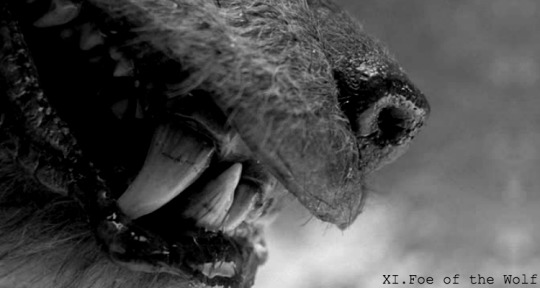
I feel for Will, I really do. He loves his dogs and to watch one as mighty as Fenrir be bound and hurt in such a way would be heartbreaking for him. Much like Tyr (the god who actually has his hand eaten by Fenrir), Will is ruled by his conscience and his honor (at least before Hannibal gets ahold of him). He wants to be fair and just. The greater good needs Fenrir bound, but as he loves and empathizes with the hound, he’s torn. This is how Will feels as the show shifts between season 2 and 3.
The wolf is tricked by three fetters (or ties) of which the first two he breaks free. The third is infused with magic and it ultimately ensnares him, leaving him bound (though still growing) until he breaks free at Ragnarök (Fenrir’s fettering story is in the Prose Edda, “Loki and his Offspring”).
But who is Fenrir to Will? Well, he’s a lot of things: regret and guilt of course, but ultimately Fenrir is Hannibal. Like Hel is the embodiment of what Hannibal took from Will, Fenrir is what Will took from Hannibal. Will betrayed Hannibal’s trust and he rejected his offering of friendship.
After losing his hand, Tyr fades from the myths until Ragnarök. I imagine him returning to the island to bring food to Fenrir, much like Will visiting Hannibal in prison. In the myth, Fenrir howls so loudly that his captors stab him in the mouth, a sword left to pry open his jaw, effectively silencing the beast (or effectively muzzling Hannibal with that infamous half-mask). Fenrir’s blood and saliva pour from his gaping maw to form the river Ván.
I imagine Tyr sitting by Fenrir as the wolf continues to grow, petting his ever-lengthening fur and never getting over what he’d done. While the other gods laughed when Fenrir was finally bound, Tyr doesn’t. The myth alludes that he doesn’t laugh because he’d just lost his hand, but I see him silently crying to himself, not in physical pain, but out of compassion for the friend he’d just betrayed.
Now Will is obviously a little more hardened than this, but can you imagine an empath who loves dogs and has an incredible guilt complex about betraying a friend reading this myth? He’d be inconsolable.
At Ragnarök, Tyr is killed in a battle against Garm (the dog that leads Will through Niflheim). There is debate over whether Garm and Fenrir are the same wolf because Garm is called Fenrir in the Poetic Edda’s “Voluspa” (they both are named in various places having howled at the gates of Niflheim). For this reason, I have Garm struggle with his chains as Will descends into Niflheim in chapter IX. The struggling bloodies and rips up Will’s hand, the hand he will eventually lose to Fenrir.
Fenrir, of course, breaks free of his fetter at the end of the world and consumes Óðinn. This is yet another reason why I think it’s appropriate to have Hannibal take a bite from Will as they fall. It just seems to be a fitting end.
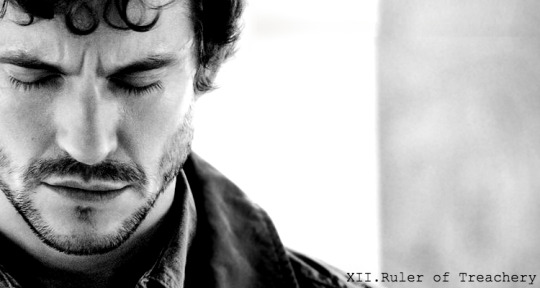
The first time I published these notes (over a year ago), I had nothing to share about this chapter. During my edits, I eventually doubled the word count, and thought I’d have something to explain, but, alas, I still find little to say.
It’s Will. He’s never enjoyed therapy, so sitting him down with Alana to watch him squirm was something I felt compelled to do. Realistically, would Alana be his therapist after all the shit they went through? No. But that doesn’t matter. I started making my own headcanons for everything so bear with me if you find my interpretation of the show wildly inconsistent. I’ve only watched it once five years ago, so this was all written from memory.
I feel like this chapter sort of sets you up for the mental anguish the man is under. He’s not handling his separation from Hannibal well and no one is believing him when he claims to be “okay.”
I will say that getting to this point in the story was eye-opening for me as a writer. The way Will and Alana interact here is very strained. At the time these notes were written, I found myself in the middle of Unhitched, exploring Hopper’s relationship with his own Alana. It really drove home how original Hopper actually is as a character. I can’t call him Will Graham anymore, I feel like he’s practically an OC, like Nicky and Bill or Blue (I have no link to that little slut; I’m so sorry). Will is still inside Hopper, but he’s a warped version of himself, stretched and twisted due to his circumstances.
Okay, I won’t talk about Unhitched again.
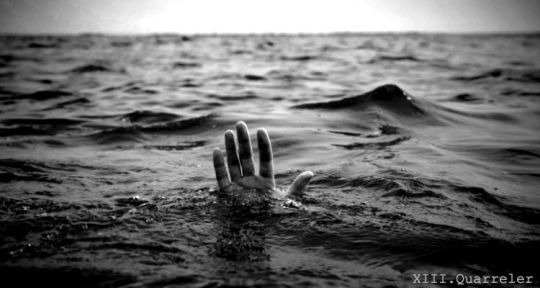
I loved writing this chapter. This is based on the myth in which Thor battles Jörmungandr, the Midgard serpent (Prose Edda, “Thor’s Adventures”). I just couldn’t write this fiction without giving Will the opportunity to go fishing. Fishing is such a core part of his character. Once again, the serpent is another version of Hannibal (and Jörmungandr is also Loki’s offspring).
Thor is basically made to look a fool in a previous myth (a giant plays a few deceptive tricks on him) and he takes out his anger on the serpent (even though his rage is somewhat misplaced since the serpent didn’t trick him, the giant did). I gave Will a new resolve in this chapter. He’s a bit angrier, vengeful, and ready to stop the madness. He’s also made to feel a little foolish by the old man who continues to call him “boy.” In the myth, Thor appears as an older boy.
In the end, Will sacrifices his eye (like Óðinn) to pull the beast out of hiding much like he uses himself to find Hannibal in Europe (though in my fic, that has yet to happen). There’s a lot more to it, but that’s the gist.
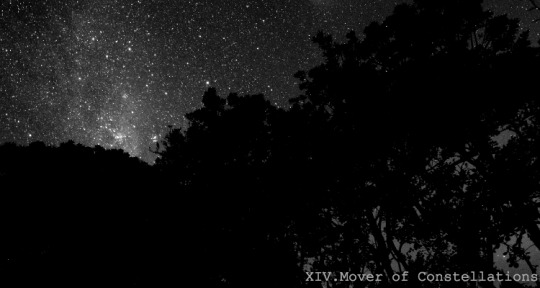
And just like that, Will is expected to move on. I wanted to make the death of One-eye just a blip in time. His death is unimportant to the world despite how deeply important he was to Will. This is how Will has always had to live. He becomes personally invested in people on a deep, almost spiritual level only to have them walk away, or be taken away, or simply not reciprocate his feelings.
He was seeing One-eye as a very important being – a soothsayer, somewhat. He was gaining personal insight that he’d never had before. And then the man was pulled from him and destroyed and that connection is suddenly severed.
Was One-eye actually important? Was he supernatural? Or was Will projecting all of that onto him because he is depressed, injured, terrified, and heartbroken? Who’s to say?
I can’t imagine living like Will. I have studied empathy for months trying to get a sense of what turmoil Will would have to live with. I understand why he wants to be alone. I understand how easily he can lose himself in others. He’s malleable and easily manipulated. It would be terrifying to feel that vulnerable constantly, especially after the last few years of being deceived, framed, and then losing the trust of your colleagues.
But anyway, we leave Will hellbent on finding Hannibal and finishing what they started and this is where we re-merge onto the canon timeline, right before Will heads out to find Hannibal.
I cannot believe you read all that. My god. You win a gold goddamn star, reader.